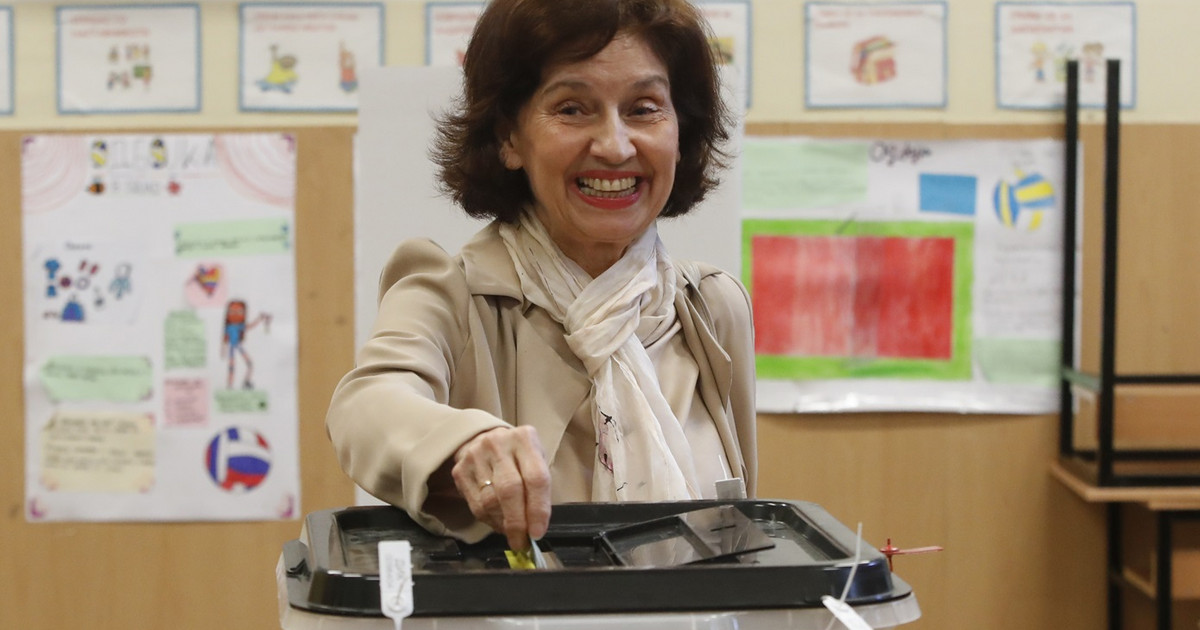Much of Russia’s energy exports have been hit by Western sanctions since the country began its full-scale invasion of Ukraine, with one notable exception – nuclear power.
Russia’s state nuclear power monopoly Rosatom, which exports and enriches uranium as well as builds nuclear power plants around the world, has been in control of Europe’s largest nuclear power plant in Ukraine’s Zaporizhzhia region since Russian forces took a year ago.
Kiev has accused Russian forces of turning the complex into a military base and using it as cover to launch attacks, knowing Ukraine cannot return fire without risking hitting one of the plant’s reactors. Ukraine has also blamed Russia for explosions there, including late last year.
Petro Kotin, interim president of Energoatom, Ukraine’s atomic energy company, is concerned about the militarization of the plant, but also about the significant reduction in the number of qualified professionals at the site. The factory’s Russian press office told CNN that new employees are being recruited, “which guarantees [sua] safe operation”.
If something happens, Energoatom “can’t step in and really mitigate any consequences or any emergency” because Russia controls the territory, Kotin said.
Despite what Kotin described as the growing risk of an error or breach of safety protocols at the Zaporizhzhia plant and repeated calls from Kiev for sanctions on Rosatom, the Russian company remains largely unscathed, although the UK has sanctioned its top management and several subsidiaries last month, and Finland ended a power plant deal in May.
Experts say Rosatom remains protected because of the vital role it plays in global nuclear energy and the fact that it cannot be easily replaced.
To begin with, Rosatom is a major exporter of nuclear fuel. In 2021, the United States relied on the Russian nuclear monopoly for 14% of the uranium that fueled its nuclear reactors. European utilities bought nearly a fifth of their nuclear fuel from Rosatom.
According to Paul Dorfman, chairman of the Nuclear Consulting Group and a longtime adviser to the UK government and the nuclear industry, the European Union has made little progress since pulling away from the Russian nuclear industry.
Rosatom also provides enrichment services, accounting for 28% of what the United States required in 2021.
It has built several nuclear power plants around the world and, in some cases, financed their construction. By the end of 2021, nearly one in five nuclear power plants in the world were in Russia or built in the country, and Rosatom is building 15 more outside Russia, according to Columbia University’s Center for Global Energy Policy.
Kacper Szulecki, a research professor at the Norwegian Institute of International Affairs, says the cost of building a nuclear power plant is so high that it can only be financed by governments, and in some cases, even they cannot afford it.
In these cases, Rosatom often steps in, offering credit lines guaranteed by the Russian government and, in some cases, long-term contracts to supply fuel or even operate the plant.
Szulecki, co-author of a recent article on Russia’s nuclear industry, says the most extreme of these types of deals is the “build-own-operate”. It was first used by Rosatom with the Akkuyu power plant in Turkey, which the corporation is building, fully financing and has committed to operate for its entire lifespan.
This dependency may outweigh other considerations. For example, Hungary has been the European Union’s most vocal opponent of sanctions against Rosatom. It is also one of the few EU countries that rely on nuclear energy for more than 40% of its electricity and has a long-term financing agreement with Rosatom to build a nuclear power plant.
Experts say finding new suppliers to replace Rosatom in the global nuclear industry would take years.
This may be why, far from dissuading future customers, the occupation of the Zaporizhzhia factory by Rosatom coincided with the growth of the company’s external income.
Its managing director Aleksey Likhachev told Russian newspaper Izvestiya in December that overseas revenue was on track to increase by around 15% in 2022 compared to 2021.
For his part, Energoatom’s Kotin believes that Rosatom is keeping the equipment at the factory so poorly that the Russian occupation could cause irreversible damage.
If it continues for another year, “I’m pretty sure we won’t be able to restart this plant,” he said. Diplomatic efforts to return control of the plant to Ukraine have stalled, Ukraine’s Energy Minister Herman Halushchenko said at the weekend.
Russia has repeatedly accused Ukraine itself of bombing the Zaporizhzhia factory and, in an email to CNN Rosatom’s press service for the factory denied that there is heavy military equipment on site.
Source: CNN Brasil
I am an experienced journalist, writer, and editor with a passion for finance and business news. I have been working in the journalism field for over 6 years, covering a variety of topics from finance to technology. As an author at World Stock Market, I specialize in finance business-related topics.






